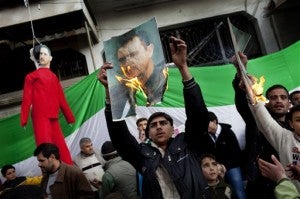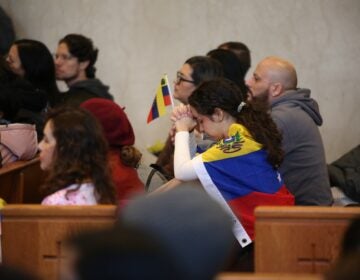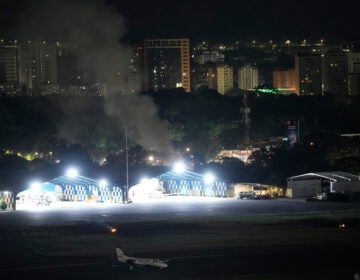Update and debate on Syria
Listen

Hour 1
Officials from the United States and Arab and European countries, under the umbrella of the Friends of Syria, met in Tunisia last week to back a proposal for an immediate ceasefire to allow humanitarian assistance to areas in Syria that are under assault from pro-government forces. Since the uprising began last spring, between 5,000-7,000 people are believed to have been killed by President Bashar al-Assad’s troops. The city of Homs, the center of the uprising, has been under relentless shelling, resulting in the destruction of electrical and water systems and severe shortages of food and medical supplies. A United Nations panel issued a report last week finding that the Syrian government has committed gross crimes against humanity, including the shooting of unarmed women and children, attacks on civilian neighborhoods and the torture of wounded protesters. How should the U.S. and the rest of the world respond and what is the likelihood that protesters will succeed in forcing President al-Assad to resign? We’ll talk about the root of the uprising, who the opposition is and what are the next steps in preventing the slaughter of more Syrian civilians. Our guests are KARAM NACHAR, a Princeton University doctoral student and cyber-activist working with the Syrian opposition, and JOSHUA LANDIS, author of Syria Comment, a daily newsletter on Syrian politics.
Listen:
[audio: 022812_100630.mp3]
WHYY is your source for fact-based, in-depth journalism and information. As a nonprofit organization, we rely on financial support from readers like you. Please give today.





